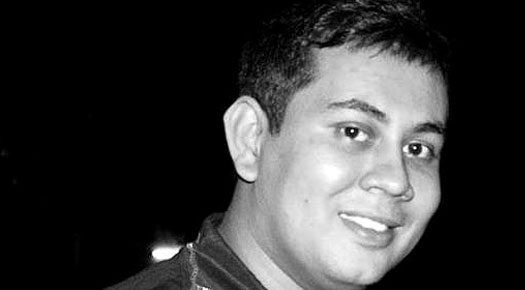
Police officials in Bangladesh said earlier this month that they had arrested two individuals from a banned Islamist group, Ansarullah Bangla Team, for their alleged involvement in the gruesome murder of yet another secular blogger. With the recent killing of 40-year-old blogger Niladri Chatterjee, senior police official Mahbub Alam said it has become increasingly obvious that secularist writers are being systematically targeted in the country.
In a series of attacks that have been launched against online critics of religious extremism in the Muslim-majority nation, Chatterjee, also known as Niloy Neel, went down as the fourth victim in less than six months after he was hacked to death at his residence in the capital city of Dhaka by militants armed with machetes earlier this month. Chatterjee, an ardent advocate of secularism, wrote primarily about human rights issues and atrocities that have been waged against religious minorities.
From time to time, he also opined on the activities of the International Crimes Tribunal that was set up by Prime Minister Sheikh Hasina in 2010 to punish those who allegedly cooperated with Pakistani soldiers during the Bangladesh Liberation War of 1971 to kill over three million Bengali nationalists and systematically rape at least 200,000 women as part of what has been historically recorded as a genocide. The tribunal has since convicted several senior leaders of a local Islamist party, Jamaat e Islami, despite them denying any wrongdoing.
“Niloy was an activist of the pro-liberation platform. He was killed because there is no justice in the country,” Imran Sarker, head of a network of activists and bloggers, said after Chatterjee’s attack.
Even though the Bangladeshi government has said that it is trying to crack down on Islamist groups that are trying to transform the South Asian nation of 160 million citizens into a Sharia state, critics believe that the administration has done little to nothing to stop the attacks that have been carried out against those who defend secularism and advocate free speech. The critics also say that this has caused most secularists in Bangladesh to go into hiding or escape abroad, as they continue to write under pseudonyms or in some cases, stop writing for good. Additionally, the critics have warned the government of a hit list that is being circulated across the country. Apparently, the list features a total of 80 bloggers that Islamic hardliners and their hit squads are likely to target as they already have access to their official names and addresses.
Three days after Chatterjee’s death, Islamist militants allegedly threatened six other secular activists on Facebook. The activists, Syed Mehedi Hasan, Henry Swapan, Syed Mehedi Hasan, Charu Tuhin, Pritom Chowdhury and Nazrul Biswas, all of whom are also members of Ganajagaran Mancha, believe they are being targeted for demanding maximum penalty for perpetrators of all war crimes during Bangladesh’s nine-month long freedom struggle and calling for a ban on religion-based politics in the country. The activists also confirmed that the four bloggers who have already been slain were part of the same group.
The Facebook user, who threatened the six bloggers by posting their pictures and labeling them ‘enemies of Islam’, has been identified as Ansar BD.
“Masallah, we are successfully start work in division. There are three anti Islamic poet & three organiser of blogger. They are the enemy of Islam. We should do what will our aim,” read his threat.
The police’s response to Ansar BD’s audacious warning was even more appalling as it went on to tell writers and bloggers that they should not intentionally hurt people’s religious sentiments. As if reprimanding those who have victimized in Bangladesh over the last one year was not enough, the police also went on to say that it would be compelled to arrest writers and bloggers who criticize religion.
“Hurting religious sentiments is a crime according to our law, and for hurting someone’s religious sentiment, the person will be punished by up to 14 years in jail,” police inspector-general AKM Shahidul Hoque said. “Those who are free thinkers and writers, I request them, please make sure that they don’t cross the line. Anything that may hurt anyone’s religious sentiments or beliefs should not be written.”
Despite Bangladesh’s constitution stating that Islam is the country’s official religion, it guarantees equal protection to all other faiths. In fact, right to freedom of thought and conscience and right to freedom of speech are also listed among the salient features of the country’s constitution.
“It’s shocking that Bangladesh authorities not only failed to protect the bloggers despite complaints to the police about threats against them, but instead are proposing self-censorship,” said Brad Adams, Asia director of Human Rights Watch. “The government should recall that its duty is to uphold the Constitution and protect people’s lives, as well as their religious freedom.”
Photo Credits: UK Daily Mail
